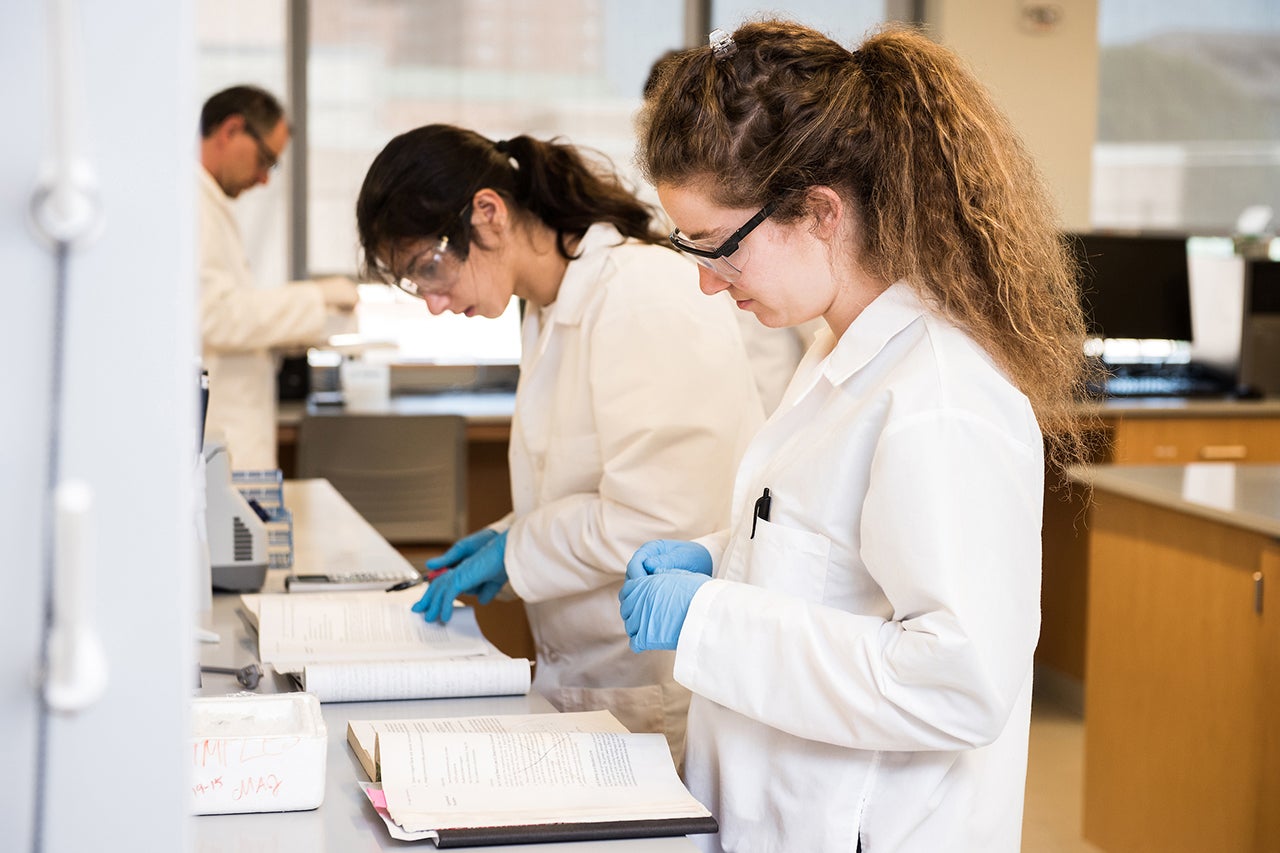For decades, the College of Charleston has served as a feeder to the Medical University of South Carolina for students who wish to enter the health care field — from nurses to physicians to child life specialists. Just five blocks away from the College’s campus, MUSC, the only comprehensive academic health system in South Carolina, has proven to not only be the perfect place for students to shadow, research and volunteer, but also to obtain their professional health care degrees.
The relationship between the two institutions will now be even closer thanks to a new partnership.
An agreement between the College and the MUSC College of Pharmacy has created the first formal program that will guarantee up to five incoming first-year CofC students who plan to pursue a pharmacy career a place in the MUSC College of Pharmacy. It will also cut the number of years to obtain a doctorate in pharmacy by one year.
“It’s reassuring to have a guaranteed spot with the College of Pharmacy — as long as the requirements are met,” says Karen Eippert, director of pre-professional health advising at the College of Charleston. “It’s a demanding course load, but for students who want a more abbreviated program and to reduce their overall student debt, it’s certainly a viable option.”
While students at the College can continue to apply to the College of Pharmacy using traditional channels, up to five CofC students will be guaranteed a place in the accelerated program. Through the program, students will spend their first three years at the College majoring in biology, while also job shadowing to experience what it’s like to be a pharmacist. To confirm their interest in pharmacology, students are encouraged to intern as a pharmacy technician over the summer.
The fourth year, students will transfer to MUSC, but will still be part of the College. At the end of the fourth year, students will receive their bachelor’s degree and then continue on at MUSC for three more years to receive a Doctor of Pharmacy degree. During those three years, students will continually experience what it will be like to be a pharmacist, particularly in the final year when students work in various pharmacy settings.
“This agreement builds upon an already strong relationship,” says Dr. Philip Hall, dean of the College of Pharmacy at MUSC. “We have always been impressed with the caliber of CofC students and typically have five to 10 students or graduates join us every year. Pharmacists are some of the most accessible health care professionals, so it is essential that they know how to speak with both patients and medical practitioners. MUSC places a heavy emphasis on interprofessional care, so we like that CofC students have strong science skills but also excellent communication skills.”
The accelerated degree is timely as there is demand for pharmacists in rural areas around South Carolina and the United States. “There are also some exciting new areas in pharmacy like nuclear medicine, compounding and informatics,” notes Eippert.
The strong relationship between the two institutions takes full advantage of the power of a liberal arts degree and high-quality medical research and education. To continue to build on the relationship, both MUSC and the College are actively exploring other areas where students can benefit from accelerated pathways to health care degrees.




